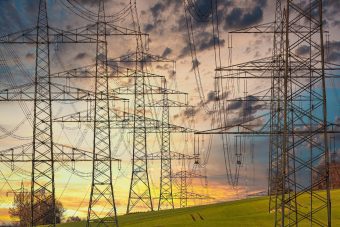
The prevailing opinion that energy is used irrationally in our country is only partly true. This opinion is based on two energy indicators that are most often presented in public, which do not reflect in the true sense the attitude of our citizens towards energy.
The first is energy intensity, which is easy to calculate and, therefore, very popular. This describes how much primary energy a country consumes to generate its gross national income. For Serbia, in 2019, energy intensity was 5.04 Mwh/EUR, while for Germany, it was 2.76, Austria 3.29, and Croatia 3.07 MWh/EUR. The main cause of this indicator being so high in Serbia’s case is not the inefficient use of energy, but the structure of our economy, in which energy-intensive industries prevail. For instance, the energy intensity of Iceland is as much as 12.3 MWh/EUR, yet this country is a role model when it comes to having a rational attitude towards energy.
Another indicator is the average monthly consumption of electricity in households. In 2019, this consumption amounted to 303 kWh in the EU and in our country 462 kWh. However, we should bear in mind that the types of energy used in households differ from country to country and that in EU countries, electricity is rarely used directly for heating. Also, in quite a few EU countries, there are widespread city district heating systems. Therefore, EU residents use expensive electricity mainly for operating household appliances and cooling their homes. In Serbia, only 11.7 per cent of the households have access to the gas grid, and in larger cities, there is generally no possibility of individual use of it. At the same time, the price of electricity is low and, compared to some European countries, many times lower. Therefore, we need to behave rationally and choose the most affordable solutions, as many as 14.6 per cent of households in Serbia use electricity as the only energy source for heating, and almost all of them use it as a supplementary energy source.
IN FOCUS:
- PLANTAŽE – WINES WITH THE TASTE OF HOMELAND
- AQUAPONICS – A QUIET ECOLOGICAL REVOLUTION IN AGRICULTURE
- QUICK AND EASY WAY TO THE NEAREST CHARGER IN THE CHARGE&GO NETWORK
Inefficient heating devices with electric resistance heaters are used for heating almost entirely while using three to five times more energy-efficient heat pumps is negligible. The reason for this is again financial because the prices of heat pumps are relatively high, so with the low price of electricity, the return on investment in these devices is very long.
Regarding the use of electricity for household appliances, people in Serbia have a somewhat more relaxed attitude than their EU counterparts. The reason for this is, to a lesser extent, poor education, and to a greater extent, the low price of electricity, or financially-wise, small savings that can be generated, even if very serious consideration is given to the way these devices are used. The second reason for the increased consumption of electricity lies in the fact that most of the electrical devices in our households are significantly older and inefficient, unlike those used in EU countries.

European industry, although not as energy intensive as ours, consumes 10 per cent more electricity, while in contrast, households in Serbia consume 22 per cent more of this energy. Therefore, people should stop using electricity primarily for direct heating, start using heat pumps and, where possible, switch to using natural gas, district heating or wood biomass. The household sector has the greatest potential for saving energy.
The private sector leads the way in saving electricity and other energy sources. Market-oriented and motivated, and because they include energy costs in the price of each product or service, this sector is forced to take care of energy consumption to remain competitive. On the other hand, the public sector, and above all, public companies, which have a privileged, monopoly-like position, are not motivated to do this and, in most cases, do not treat energy rationally.
It is indisputable that last autumn, people consumed significantly less electricity and even less heat generated by the city’s heating plants. According to the public enterprise Electric Power Industry of Serbia (EPS), about 45 per cent of households in Serbia reduced their consumption by more than 5 per cent in October. However, the average air temperature in October last year was 15.4 degrees Celsius, while in the same month the year before last, it was 11.6 degrees. Also, Belgrade had as many as 22 days in October when the highest daily temperature was over 20 degrees Celsius. A similar situation was repeated in the following two months.
Regardless, it has been estimated that the recommendations, the strong media campaign about the need to save energy, and the very stimulating EPS measures to reduce energy bills in case households reduce their energy consumption, contributed to the savings. However, as it happened, the EPS’ measures proved to be immeasurable because households that normally use electricity for heating had the biggest bill discounts, not because they saved energy, but because there was no need for heating. Instead of these measures, a new tariff system should have been implemented, stipulating prices that would permanently disincentivize large consumers even more and reward those who spend little energy. The focus of measures for rational energy consumption should be directed at the households, industry, and transport sector.
Miloš Banjac
Read the story in the new issue of the Energy portal Magazine ENERGETIC EFFICIENCY



